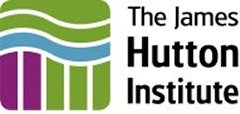 The James Hutton Institute
The James Hutton Institute
This page is no longer updated. The Macaulay Land Use Research Institute joined forces with SCRI on 1 April 2011 to create The James Hutton Institute.
Compared to the world market, the production of animal products like
meat, milk and wool has a low competitiveness and comparative cost advantage
in the European Union (EU). The protection of the common market and subsidised
products was the way to keep animal husbandry in the marginal areas (LFAs)
of the EU. With the GATT negotiations and the reformed Common Agricultural
Policy (CAP) this closed European market will be opened to the world market.
This will lead to high competition with other countries and between the
regions resulting in large structural changes in agriculture in the community.
Rural tourism plays an important role in the local economy of many LFAs. The consumption behaviour of tourists while on holiday is different to their behaviour at home. While on holiday, adventure buying is more important than cheaper buying when at home. Tourists are often willing to buy extraordinarities (e.g. souvenirs) or pay more for products with local identity. This is even the case of food eaten while on holiday. A "good holiday" for many rural tourists includes a "good" breakfast, lunch or/and dinner in a restaurant or hotel with rural atmosphere, hospitality and traditional or tasty food of the region. Nowadays, many restaurants offer a menu with special emphasis on the origin of the meat. As with the BSE-crisis, this has became an important marketing strategy of many butchers and restaurants.
Besides the „direct products" from animals sold in LFAs to rural
tourists, the marketing of „indirect products" has become of more
interest in the last decade. Tourism enterprises have identified the cultural
landscape and the "intact world" as an attraction for tourists
to their chosen holiday location. These expectations of rural tourists
have received more attention to promote the public relations of the region.
Beautiful landscape, rural lifestyle and farming adventure holidays are
advertised by tourist agencies. Actually, the German rural tourism performs
as "competition between the regions" - every region tries
to attract tourists with its local identity.
This paper shows in the example of the Biosphere Reserve Rhön (BR
Rhön) the potential and problems of marketing animal products to rural
tourists in LFAs. The paper is divided into marketing of "direct goods"
like meat and wool and "indirect goods" like recreation on farms,
participating in rural lifestyles and landscape management in the BR Rhön.
Examples like this show new functions and strategies for animal husbandry. Local distinctiveness and operation with tourist agencies, restaurants, nature protection offices and associations are a possible way of successful marketing of animal husbandry in LFAs, when the area is attractive for rural tourism. Imagination can be an advantage in sheep keeping. It was shown that sheep do not have to be marketed cheaply. There is competitive sheep production even in LFAs and it is possible that EU-wide markets are open.